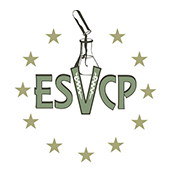HUNGARY & BUDAPEST
Hungary (https://hungary.com/)
Hungary is a popular destination for visitors who wish to encounter this beautiful country with its natural, historical, cultural and gastronomic attractions.
The country covers an area of less than 100,000 km2 and it has roughly 10 million inhabitants. Hungary has become a full member of the European Union from 1st May 2004.
The country is home to the world’s largest thermal water cave system and the second largest thermal lake – „Hévíz” –, the largest lake in Central Europe – Lake Balaton – and Europe’s largest natural grasslands – The Great Hungarian Plain or „Alföld” in Hungarian.
The capital of Hungary is Budapest, which is also the largest and most populated city.
Budapest (https://hungary.com/budapest/ )
The capital of Hungary, known by many as the "Pearl of the Danube", is undoubtedly one of the most beautifully located cities in the world. The river Danube runs through the middle of the metropolis of two million, dividing hilly Buda from the Pest plain. Because of the picturesque panorama offered by the river and its bridges, the Parliament, the imposing Royal Castle, Fishermen's Bastion and the impressive Danube Embankment, UNESCO placed this site on the World heritage list. There is no other capital city in the world with 100 thermal springs and 12 medicinal baths within its boundaries.
We hope that you will enjoy the wonderful panorama and taste the delicious foods and excellent wines of the country while in Budapest!
Getting to Budapest
About 35 airline companies operate regular flights to and from Budapest. Railway connections are excellent and there are also bus connections with countries in the vicinity of Hungary. Budapest can be reached by car on motorways M1, M3, M5 and M7.
Public Transport in Budapest
Public transport in the city is well-organized including extensive network of trams, buses and metro lines. Tickets must be purchased in advance at vending machines or at metro stations / newsstands. Daily tickets and Tourist passes (valid for 1-3-7 days) are also available. (https://bkk.hu/en/travel-information/)
Taxis
Taxis are yellow in Budapest. We suggest that you use only taxis equipped with a taximeter, such as Főtaxi, City Taxi, Taxi5, TaxiPlus or Buda Taxi. Beware of private cabs, especially those without a taximeter.
Parking
Parking in the central districts of Budapest is available against a fee. You need to purchase a parking ticket from the vending machines on the streets. (https://www.budapest.com/travel/getting_around/parking_in_budapest.en.html)
Notice for Drivers (Zero Alcohol)
Drivers should be aware that there is a zero tolerance of blood alcohol level while driving in Hungary.
Credit Cards, Currency and Exchange
The official currency in Hungary is Hungarian Forint (HUF). Exchange facilities are offered at the airport, in hotels, at the exchange desks of banks and at several exchange offices.
Visa and Master Card are accepted at the hotels, at most of the restaurants and city stores, but you should ask or look for the logo before ordering a service.
Shopping hours
The usual shopping hours in Budapest are from 10:00 to 18:00, in big shopping centres up to 21:00 or 22:00. Shops and food stores are open from Monday till Sunday.
Tipping
Tips in restaurants and for taxis – depending on the service – are optional but expected. Maximum rate is usually 10 %. There are some restaurants where the service charge is included in the bill, in this case do not tip.
Passport and Visa
Participants from outside the EU have to possess a passport valid for at least 6 months after the end of the Conference. Please check your visa requirements at the web-site of the Portal of the Hungarian Ministry of Foreign Affairs.
Upon request the Congress Secretariat will send a personal invitation to Conference participants. This invitation, however, is meant only to help visitors to raise funds or to obtain a visa, and will not constitute a commitment to provide any financial support.
Electricity
Electricity is supplied at 230 V, 50 Hz. Round, European-style two-pin plugs are used, different from that used in some other countries, e.g. the USA, the UK and Japan. Appliances designed to operate on 110/120 Volts need a voltage converter and a plug adapter.
Insurance
The Organizing Committee cannot assume responsibility for injuries or losses occurring to persons or personal belongings during the Conference. Participants are therefore advised to travel with a valid insurance package.

